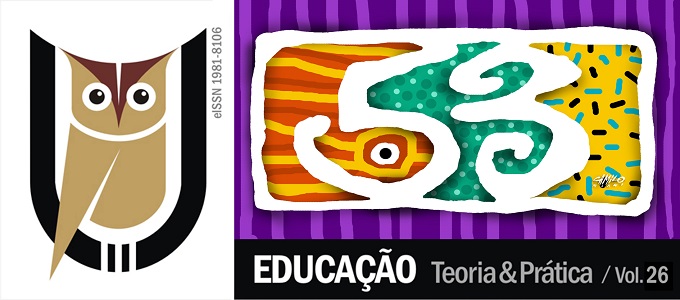CHARACTERIZATION OF SCHOOL ATTENDANCE OF STUDENTS WITH PHYSICAL DISABILITIES IN A CITY OF SÃO PAULO STATE
DOI:
https://doi.org/10.18675/1981-8106.vol26.n53.p484-504Keywords:
Tecnologia Assistiva, Deficiência FísicaAbstract
The study aimed to characterize the educational services offered to students with physical disabilities in a Municipal Education of a midsize city of São Paulo state. We gathered the data through document analysis and application of semi-structured interviews. We recorded the data on audio, transcribed and analyzed them. We categorized them into two categories, the first of which referred to the attendance policies and second, the organization of care for students with physical disabilities. The results showed that the system investigated showed accessibility policies supporting the use of assistive technology for students with disabilities enrolled in regular education, despite not indicate the need for specialized educational services when the student has no associated cognitive impairment. We concluded that there are myriad factors to contemplate the school inclusion of students with physical disabilities and that many actions are needed to ensure education and social participation of this target audience. Keywords: Special Education. Physical Disabilities. Specialized Educational Services. Assistive Technology.Additional Files
Published
How to Cite
Issue
Section
License
Authors who publish in this journal agree to the following terms:
a) Authors assign copyright to the journal, with the work simultaneously licensed under the Creative Commons Attribution License that allows sharing of the work with acknowledgment of authorship and publication in this journal.
b) The policy adopted by the Editorial Committee is to assign copyright only after a period of 30 months from the date of publication of the article. After this time, authors interested in publishing the same text in another work must send a letter to the Editorial Committee requesting the release of the assignment of copyright and wait for a response.
c) This journal provides public access to all its content, since this allows greater visibility and reach of published articles and reviews. For more information on this approach, visit the Public Knowledge Project, a project that developed this system to improve the academic and public quality of research, by distributing OJS as well as other software to support the public access publication system to academic sources. The names and email addresses on this website will be used exclusively for the purposes of the journal and will not be available for other purposes. This journal provides open any other party  This work is licensed under a Creative Commons License
This work is licensed under a Creative Commons License











